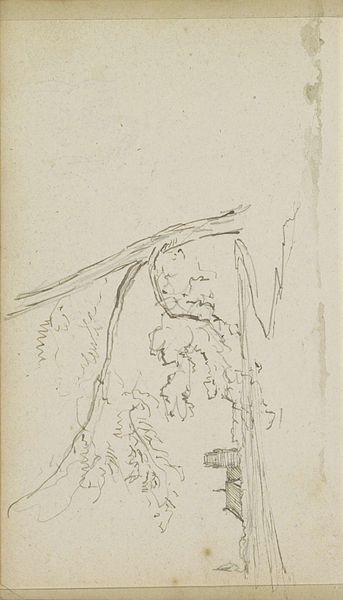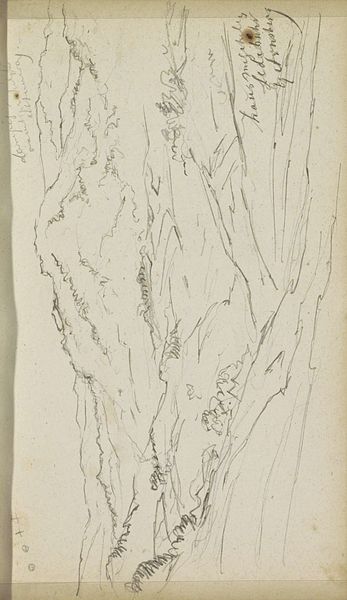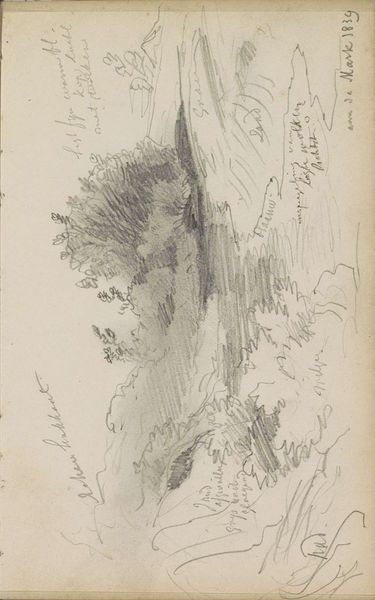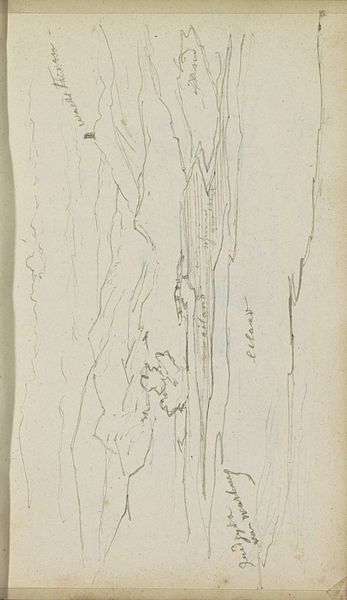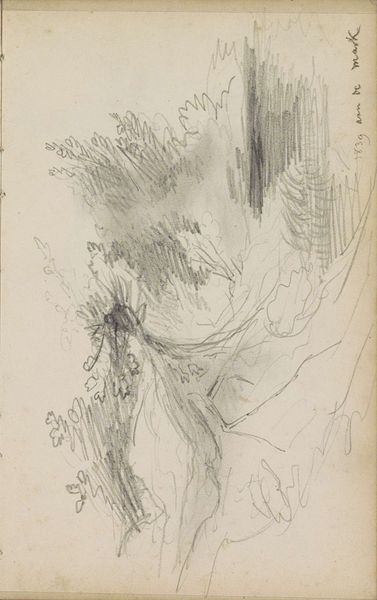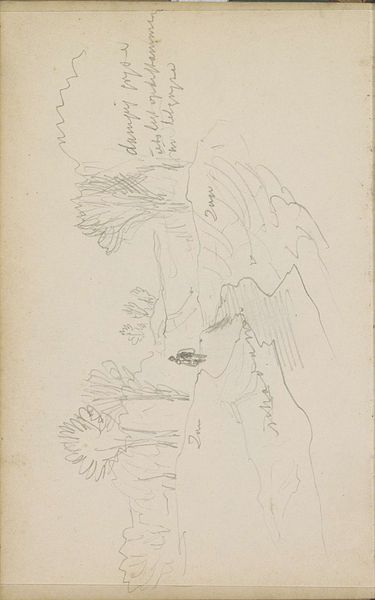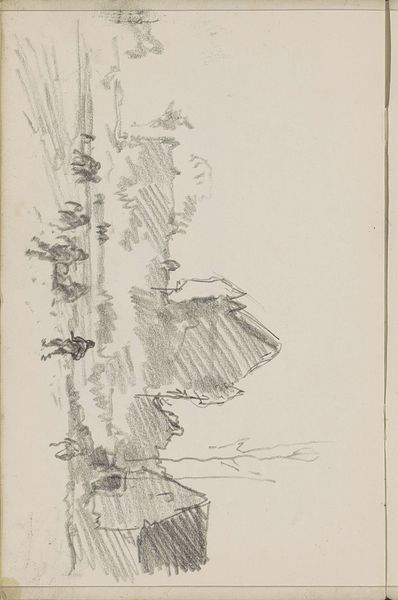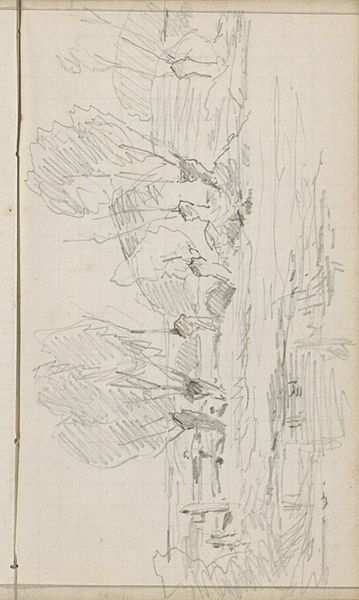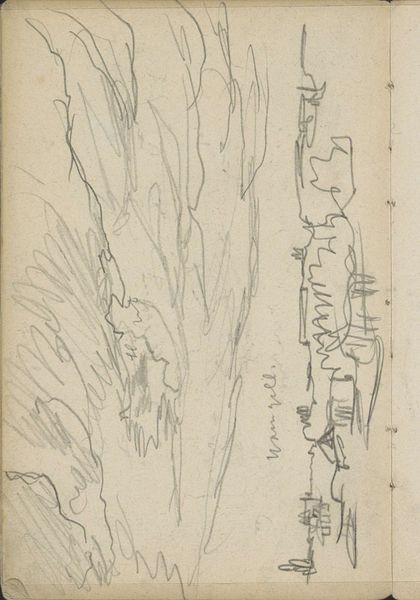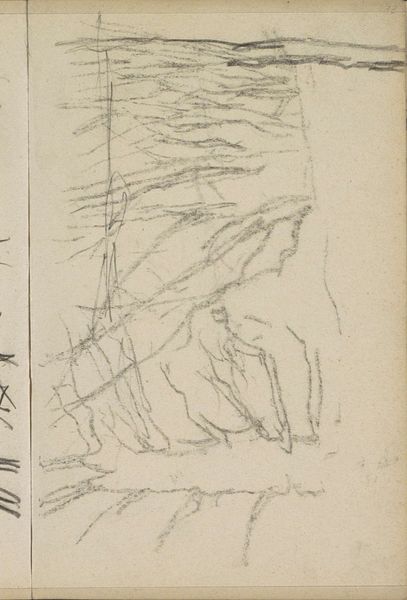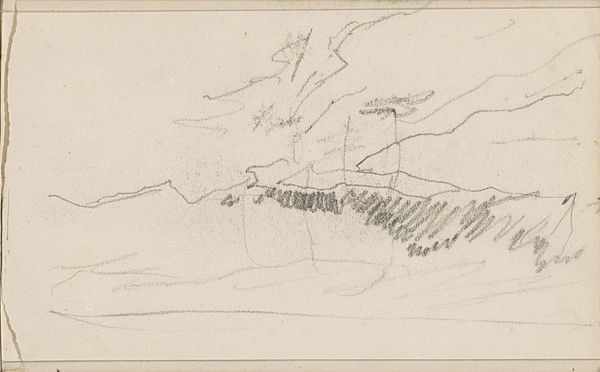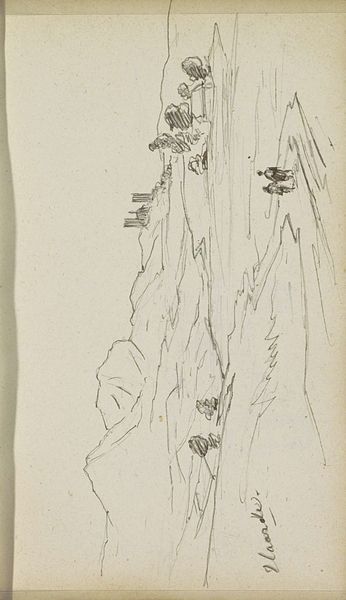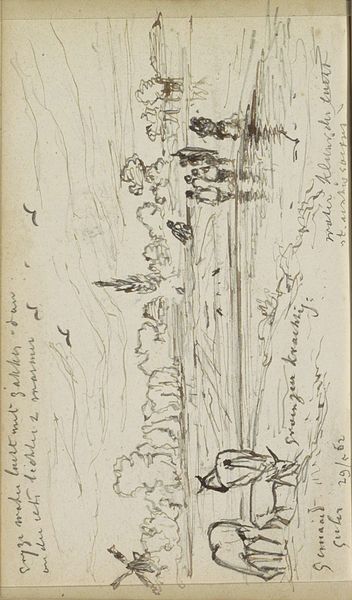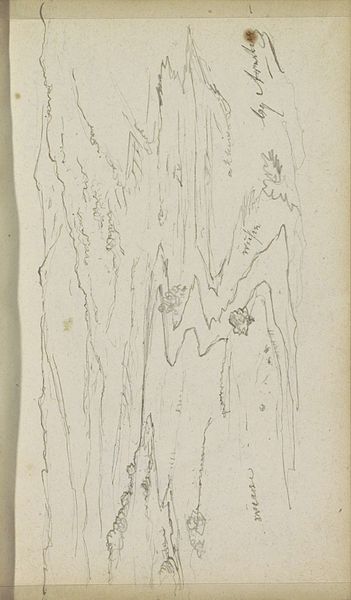
Copyright: Rijks Museum: Open Domain
Curator: I find this sketch by Johannes Tavenraat, titled "Rivierdal van de Ruhr bij Arnsberg", or "River Valley of the Ruhr near Arnsberg", so evocative. Dating from after 1854, it’s currently held here at the Rijksmuseum. What strikes you about it? Editor: The apparent speed of its creation. You can almost feel Tavenraat's hand flying across the paper. It's a really raw and immediate sensory impression, mostly conveyed through the singular use of pencil on paper. Curator: Absolutely. And it embodies a romantic ideal. The industrial Ruhr, captured in such a deliberately un-industrial medium. It suggests that even as technology and industry advanced, a counter-movement sought refuge and expression in more organic, natural landscapes and practices. Editor: Exactly! Consider the labour itself. It’s just a single sheet, a lone artist, working en plein air – radically different from the coal mining and factories dominating the actual landscape, right? Was it, in itself, an act of defiance? Curator: That's a valid point. Perhaps "defiance" is a strong word, but I do think the sketch serves as a record of a changing relationship with the natural world as urban life shifted and transformed. He, along with many others, turned to nature to confront such things. And landscape painting offered an important form of solace, and commentary. Editor: So it's more than just pretty scenery then, right? I see a record, even a document of social tensions during a transformative period in the Ruhr’s industrialisation and beyond. The scale isn’t grandiose like many academic paintings, so maybe Tavenraat was offering viewers, regular working people, a view into a rapidly fading version of life and the world around them. Curator: Possibly, or maybe it just suggests to them that industry has not destroyed everything beautiful. What makes the Ruhr special isn't gone for good, it seems to suggest. Editor: Precisely. The sketch offers a really complex negotiation of progress, tradition, and the value of unmediated human experience at a tumultuous time. It's really clever, in a seemingly unrefined way! Curator: And the use of a quick, on-the-spot drawing shows a different side of the social reality than most history paintings can show. Editor: Agreed. Something in its directness makes it relatable today, as we navigate our own transformations. Thanks for sharing this thoughtful piece.
Comments
No comments
Be the first to comment and join the conversation on the ultimate creative platform.
